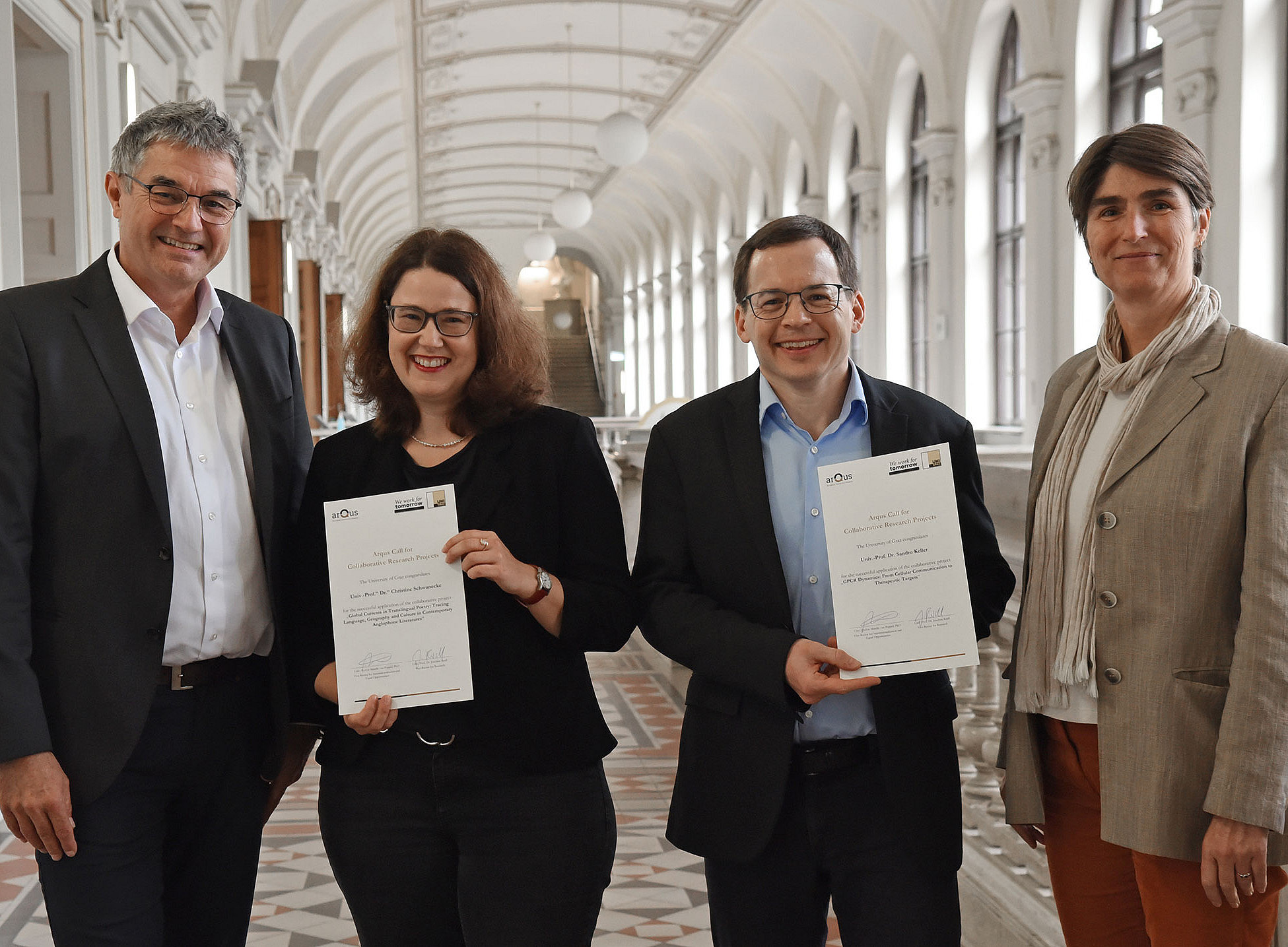Sandro Keller's and Christine Schwanecke's projects were rated as excellent by independent reviewers and selected from a total of 19 submissions for funding through the Arqus Collaborative Research programme. These funds will be used to finance one doctoral student per project for three years to promote young researchers. They will also support the exchange of expertise and know-how through a research stay at the university of the respective cooperation partner.
New targets for precise medicines
How do cells communicate with each other? And why is this knowledge crucial for developing better drugs? "If the exchange of information and substances between cells doesn't work properly, this can lead to diseases such as cancer, Alzheimer's, or the rare metabolic disease cystic fibrosis," says Sandro Keller. He and his team are unraveling the molecular mechanisms of this communication, which is mediated by proteins in the cell membrane. So-called G protein-coupled receptors play an important role in this process, acting as messenger substances or drugs. "In the Arqus-funded project, we are investigating the function of the receptor that binds acetylcholine. This neurotransmitter, whose role was discovered about a hundred years ago by Nobel Prize winner Otto Loewi at the University of Graz, is important for brain development and the control of heart rhythm," says Keller. "With our findings, we want to open up new possibilities for targeted therapies of cardiac arrhythmias with fewer side effects," says the researcher. The co-operation partner is the renowned biochemist Irene Coin, Professor at the University of Leipzig.
Poetry that overcomes cultural barriers
What makes poetry by authors who do not write in their native language so special? And what answers can this kind of literature provide to current social issues? "Especially today, in a time of growing nationalisms, 'translanguage poetry' is an example of socially relevant literature; it brings different languages and cultures together and emphasises what unites them," says Christine Schwanecke. Together with Lisa Schantl, editor of Tint Journal, an online literary magazine dedicated to ESL or non-native English creative writing, she is analysing contemporary English-language poetry written by people with a first- or second-generation migration background. "In terms of content, origin and belonging are key issues. The poems allow a critical view of the present that doesn't just mark things in black and white, but instead embraces diversity and ambiguity. Linguistically, this literature is innovative in terms of vocabulary and grammar. It not only questions conventional thought structures, but also takes poetry off its alleged dusty pedestal and makes this art form accessible to a wider audience," contends Schwanecke, emphasising its importance. One example is "dub poetry" of Jamaican origin, which is usually presented in performances. The cooperation partner in the Arqus-funded project is professor Rūta Šlapkauskaitė from Vilnius University. Lisa Schantl is devoting her doctoral thesis to this research.
In addition to the University of Graz, the European University Alliance Arqus includes the University of Granada/Spain, the University of Leipzig/Germany, the University Claude Bernard Lyon 1/France, Maynooth University/Ireland, the University of Minho/Portugal, the University of Padua/Italy, the University of Vilnius/Lithuania, and the University of Wroclaw/Poland.
The Arqus Innovation Fund has also recently funded a project at the University of Graz: Fiasco Fest goes Arqus.
